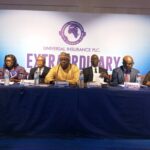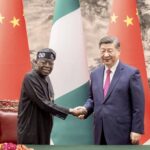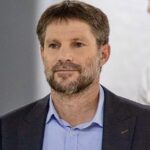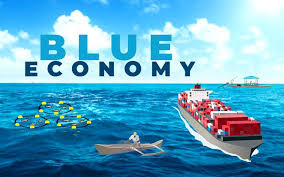By Aisha Cole
Stakeholders in the Nigerian Maritime and Energy Sectors, on Sunday, said that increased participation of women in the nation’s ocean economy, is crucial to unlocking potentials of the blue economy.
They made this known in interviews with the News Agency of Nigeria (NAN) in Lagos.
Mrs Nneka Obianyor, Director of Reforms Coordination and Blue Economy, Nigerian Maritime Administration and Safety Agency (NIMASA), said that the ocean economy globally generates above 2.5 trillion dollars annually.
According to her, the ocean economy serves as a key driver of trade, food security, and innovation, adding that Nigeria and Africa generally should harness the potentials of its blue economy by unlocking the capabilities of women.
“The ocean economy is a key engine for growth in Africa; but to fully unlock its potential, we must unlock the talents of women.
“The maritime industry remains one of the world’s most male dominated sectors, with women representing less than two per cent of seafarers and about 10 per cent of leadership positions.
“In Nigeria and West Africa, women are making visible progress in logistics, administration, academia, and policymaking.
“We now see female ship captains, port managers, and maritime lawyers; Yet, women remain underrepresented in seafaring, port operations, and technical roles,” she said.
She outlined core principles for gender inclusion, such as:
“Leadership for gender equality, inclusive governance, access to resources, capacity building, workplace safety, education in ocean sciences, gendered marine conservation, and community advocacy.”
Obianyor noted that a sustainable and inclusive ocean economy depends on integrating empowerment principles that can tackle systemic barriers against women.
Another maritime expert, Capt. Eddidong Akpanebe, identified cultural barriers and gender stereotypes as major obstacles to women’s participation, warning that Africa could not afford to underutilise half of its talent pool.
Citing the United Nations Women Empowerment Principles (WEPs), she said that the framework provides a corporate structure for gender equality across industries but needs to be tailored to suit Africa’s maritime realities.
Akpanebe proposed key actions to promote inclusivity including embedding gender considerations in blue economy policies, building female talent pipelines, unlocking capital for women-led ventures among others.
In the same vein, Chairperson, Downstream, Women in Energy, Oil and Gas (WEOG), Mrs Ruth Audu-Nungh, noted that both the ocean and energy sectors have for long been male-dominated.
She harped on the importance of mentorship and knowledge transfer for young women entering the field and urged then to remain resilient, build professional visions, and seek mentorship to excel in the blue economy. (NAN) (www.nannews.ng)
Edited by Sandra Umeh












